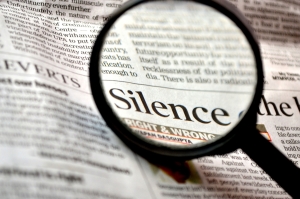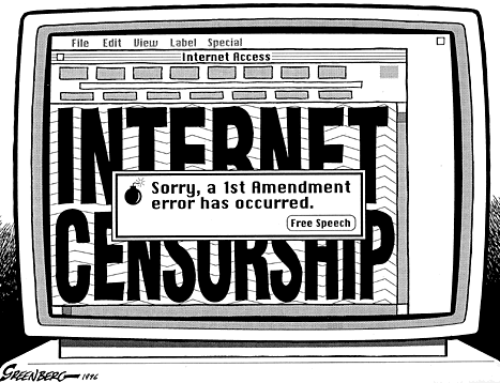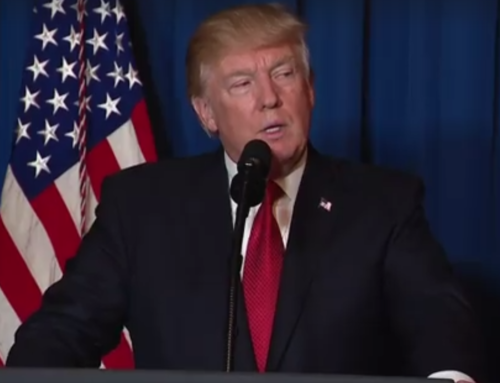Fame. Many want it; some get it. Even more have the chance with reality television, the Internet, and essentially every means technology allows us to put ourselves out there. Yes, Andy Warhol’s prophecy, “In the future, everyone will be world-famous for 15 minutes,” seems to be entirely plausible.
For the sake of accuracy, the photographer Nat Finkelstein claimed he was the one who quantified it based on Warhol’s assertion, “Everyone wants to be famous,” to which Finkelstein replied, “Yeah, for about 15 minutes, Andy.”
Some of us will end up in the limelight, whether we want to be there or not. We can try to stay and bask in it, or run for shelter. Then, there are those who will demand their fame, and do it by any means necessary.
I will not mention names in this article. I refuse. As it is my right—as a journalist and a human being—to speak out, I also have the right to not speak at all.
No, this is not about the Fifth Amendment and its right against self-incrimination. Even though this article is inspired by the spate of criminal violence committed against us, our brothers, our sisters, and our children— this is about the aftermath and how we respond to it.
The First Amendment’s Freedom of the Press grants the ability to disseminate news without government interference. How liberating. As journalists, we have the duty to cover the latest mass shooting, as well as the right to inform the public about the events leading up to it. As writers, we can demonize (or deify) the shooter as cathartically as we so desire.
As citizens, we have the right to say, “Enough.”
Enough to the tragedy, enough to the controversy, enough to feeding us every last morsel as we force it down like a bitter pill. Enough to giving the shooters the kind of attention they haven’t earned, or deserve.
The shooters should have gotten attention before they went out in a blaze of misbegotten glory. That is why it is so important to understand what got them to that point so that we can learn from it to mitigate disasters like this in the future. There are ways to do that without making them the star in their own reality show.
Remember that guy who helped plant bombs at the Boston Marathon back in 2013? He ended up on the cover of Rolling Stone. I had something to say about that: Like a Rolling Boner
In a bit of masturbatory journalism, I will quote parts from my commentary.
“ . . . he does not deserve even an iota of energy, not by me nor by any other citizen of this country.”
Well, the caveat being that the energy should have been put into him to prevent the violence he wrought, as opposed to afterwards. The fact is he committed the crime, and he got his time as a result.
“He certainly should not be rewarded for his despicable actions. So, what does landing on the cover of a popular, long-running magazine in the space normally reserved for actual musical greats do? It sounds like he got his proverbial 15 minutes, and then some.”
There it is again, that 15 minutes so many of us crave. What do you think a violence prone, mentally disturbed, angry narcissist would do to obtain it?
“It is not an irrational speculation that other troubled youths heading on a wayward path would see this, and be envious. For better or worse, that would be the aforementioned arrival and right of passage. “I got on the cover of Rolling Stone. Score!” Something to ponder the next time we are inclined to glorify a demon.”
Regardless of what we say about them, we are indeed glorifying them just by giving bandwidth. How many times have we seen the shock of orange hair that is the Aurora movie theater assailant, or the Sandy Hook shooter’s hangdog mug splayed ominously on the screen?
What do you really think these shooters were trying to accomplish? What will future gunmen aim to do, as well? As we know and fear, there will be more. When they see those before them get their moment in the sun, it encourages and reiterates to them that their struggles, anguish, message . . . whatever, will be heard loud and clear.
With our focus on them and all the words we’ve wasted on them, we give burgeoning murderers the blueprints for their self-fulfilling prophecy.
So as not to get lost in the weeds, venturing into a political debate, I present this to drive the point home that as journalists with the First Amendment in tow, we have the right to give these people fame. We also have the power to take it away. How do we do that?
For starters, I suggest the obvious: No photographs, no names, and no commentary. Don’t let them win, posthumously or otherwise. Make them the monsters under the bed. We know they are there, but we can’t see them. We don’t want to see them. They are cowards in hiding, and don’t deserve our fear, nor our time or energy. Remember, even though the shark is not seen for the first hour of the movie Jaws, that monster is still defeated in the end. Despite its size, the shark still looks like every other shark. So does any cowardly monster that goes on a rampage and takes innocent lives, just to be heard.
You might think this seems contrary to the spirit of our rights. How can you suggest we censor ourselves in the very blog that celebrates our ability to speak freely?
The crux of First Amendment is, as well as the other 26, our rights do not extend beyond our noses. We have the right to free speech, but not if it harms others. It goes without saying that rights are forfeited once a message is conveyed through violence.
Can we really countenance exercising our freedoms by even unintentionally helping propagate the message these pitiful individuals wanted to shove down our throats, thus resurrecting and immortalizing them by giving them a voice when they silenced that of their victims’?
We wield power with our speech. There is also power in what we do not say. To use another proverb, silence can speak louder than words.







Leave A Comment